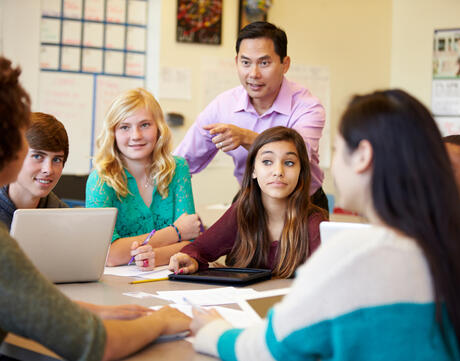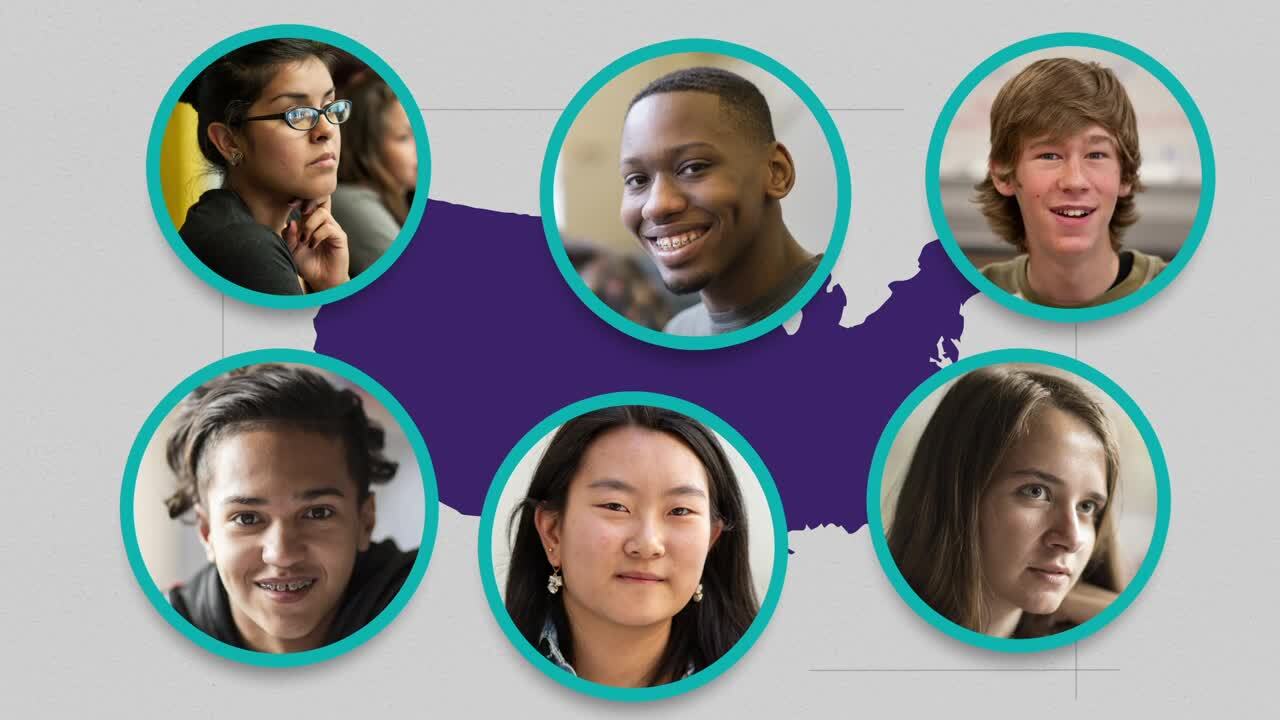
Introducing Our US History Curriculum Collection
We are proud to introduce our newest resource— the US History Curriculum Collection: Democracy & Freedom. This first-of-its-kind resource is a curated collection of pre-existing, updated, and new Facing History resources that work together to shape and supplement the teaching and learning of US History through the lens of democracy and freedom.
The US History Curriculum Collection provides teachers flexible and modular options to supplement existing US history curricula in a variety of US history courses. This collection supports teachers to plan middle and high school US history courses using our pedagogical approach, guiding questions, thematic throughline, and classroom-ready units and inquiries.
Get a quick guided tour through the collection

Get a quick guided tour through the collection
Watch this video to learn about the resources in the collection and how it can be applied in your US History course.
For nearly 50 years, Facing History & Ourselves has applied its core pedagogical frameworks—the scope and sequence and pedagogical triangle—to specific historical case studies in order to create curricular resources and professional learning that help teachers create powerful and authentic learning experiences for students. Facing History’s focus on inflection points in history stresses the importance of examining the social, cultural, and economic factors that lead to the fragility of democracy as well as the ways in which the choices of ordinary people can impact the trajectory of history.
As our world becomes more complex and interconnected, teachers and their students benefit from the strategies and skills practiced in a history classroom: critical thinking, civil discourse, and the close reading of sources that provide multiple perspectives to construct a more complete understanding of a historic event.
Facing History understands that quality social studies instruction requires robust curricular resources and strong professional development. Our new US History Curriculum Collection not only addresses the skills and strategies that students need to be academically ready for their college, career, and civic lives, but also addresses the ethical and social components of human behavior.
Democracy and Freedom
The US History Curriculum Collection asks students to reflect on what democracy and freedom means to them as they study significant events and compelling historic actors in US history. While this collection will grow over time, we chose to begin with historical moments that allowed us to elaborate on key Facing History concepts. We searched among our existing resources and consulted scholars and educators to find fresh, new entry-points that would engage students and support the ongoing work of teachers. Each of the resources in this first iteration of the collection offers students the opportunity to engage with voices, identities and stories not often centered in densely-packed US history courses.
Throughout our curriculum collection, students will explore the ‘eternal struggle’ for freedom and rights, and the project of preserving and expanding American democracy. They also demonstrate that the study of history is essential for the development of an informed citizenry; history illuminates key aspects of democracy that are missing when the functions of government are taught in the abstract.
Such lessons from history help students discover the power of their own choice to participate today. By emphasizing the contributions of individuals and groups who demanded that the nation live up to its own universalist principles, our materials provide models of civic choices that can both inform and inspire students as they prepare to exercise their civic agency today.
Be sure to visit the US History Curriculum Collection page to learn more about this new resource and the professional learning opportunities that accompany it. And stay tuned for additional resources and professional development as we update the collection.

